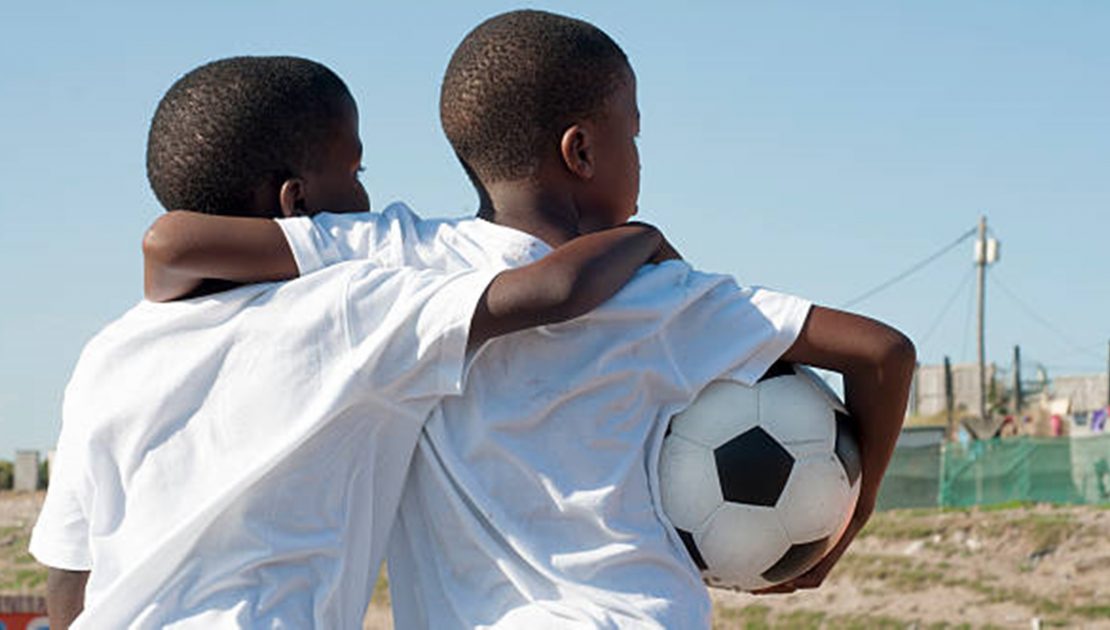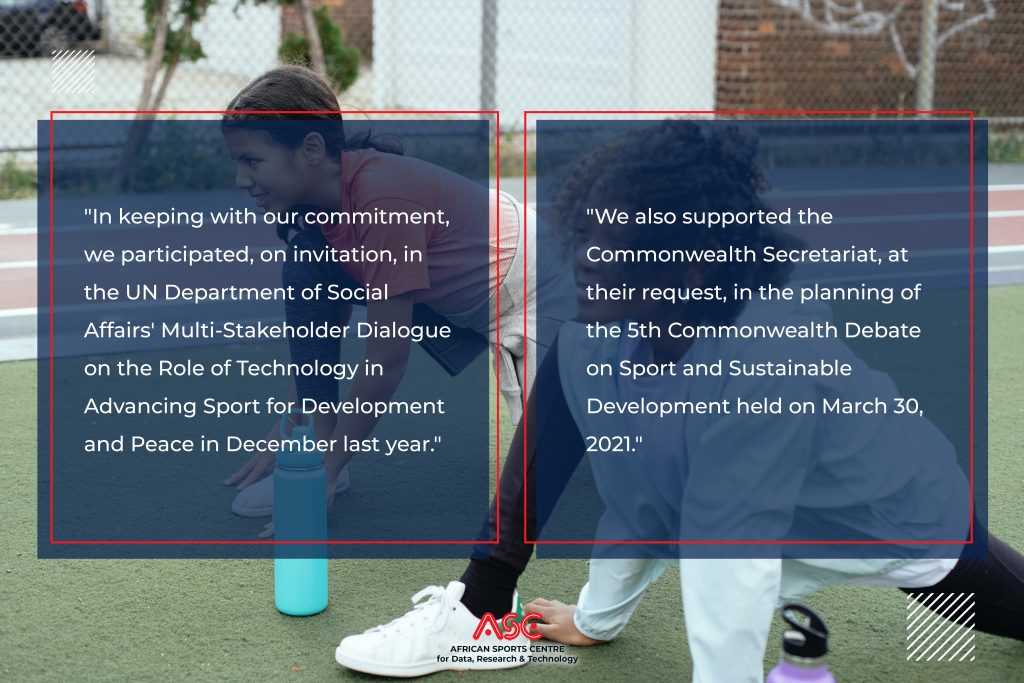INTERNATIONAL DAY OF SPORT FOR DEVELOPMENT AND PEACE: THE ASC CONTRIBUTION FOR A BETTER AFRICA
International Day of Sport for Development and Peace: The ASC Contribution for a Better Africa
-
April 6, 2021
- Posted by: Ewurama Kakraba-Ampeh

“Sport has the power to change the world. It has the power to inspire, it has the power to unite people in a way that little else does.”
Nelson Mandela
Ever imagined an Africa where gender and (dis)ability, among others, do not exist as barriers to sport participation? Where opportunities exist equally for all cadres of persons regardless of class and status? Where inequality among social groups is only but dead ice, and where inclusion and participation classically reside as central paradigms of community and development? An Africa where sport transcends leisure and recreation to the conscious promotion of health and well-being as well as socio-economic and sustainable development?
If the words above softly paint a transient, beautiful picture of an ideal world in your mind’s eye, congratulations, you have just caught up with the impelling dream of the African Sports Centre for Data, Research and Technology (ASC), a social impact company that believes in the future of Africa.
Sport has, since the late 1960s, been touted in academic literature as having an important role to play in attaining objectives in the international development sphere. However, reported practice of it emerged 20 years later and increasingly continues to feature in international development discourse and practice. The United Nations (UN) formally declared support for the concept in the early 2000s through the creation of the UN Office for Sport and Development and Peace (UNOSDP) in 2001 (the office was however closed down in 2017 in the wake of a strengthening direct partnership between the UN and the International Olympic Committee), the publication of the Sport for development and peace: Towards achieving the Millennium Development Goals report in 2003, declaring 2005 as the International Year of Sport and Physical Education, and granting the International Olympic Committee (IOC) permanent Observer Status at its General Assembly in 2009.
Sport for development frequently leverages on the power of attraction, globalised informality and unity of sport to deliver or help drive social change and inclusion, gender equality, promoting education and public health as well as fostering peace in seemingly hopeless conflict situations.

Despite the apparent progressive influence of sport in development interventions, there does not appear to be enough research explicitly linking sport and favourable outcomes in such programs. In addition, much of the research on sport for development on the Global South context has come from authors in the Global North.
Nevertheless, it cannot be denied that sport – despite some challenges – can be used as a tool to promote social change. According to the IOC, sport has the potential to help achieve 11 of the 17 UN Sustainable Development Goals (SDGs): good health and well-being (SDG 3); quality education (SDG 4); gender equality (SDG 5); decent work and economic growth (SDG 8); sustainable cities and communities (SDG 11); responsible consumption and production (SDG 12); climate action (SDG 13); life below water and on land (SDG 14 & 15); peace, justice and strong institutions (SDG 16).
In recognition of the role sport and physical activity plays in communities and in people’s lives all over the world, the UN General Assembly declared April 6 to be the International Day of Sport for Development and Peace (IDSDP) in its 2013 resolution 67/296 and the day was first celebrated the following year. The focus of celebrations this year is around the part that sport can play in building resilience and recovery from the COVID-19 pandemic within communities and in people’s lives.

At ASC, we are committed to driving sport and development, largely through the use of data, research and technology. Our work in community sport, primarily through research, is underpinned by the following: reducing inequalities, fostering participation, promoting inclusion, boosting health and well-being, and furthering economic and sustainable development. Our objectives and activities in this regard also contribute to a number of the Sustainable Development Goals, notably, Goal 3 (Good Health and Well-being), Goal 5 (Gender Equality), Goal 10 (Reduced Inequalities) and Goal 17 (Partnerships for the Goals).
In keeping with our commitment, we participated, on invitation, in the UN Department of Social Affairs’ Multi-Stakeholder Dialogue on the Role of Technology in Advancing Sport for Development and Peace in December last year. We also supported the Commonwealth Secretariat, at their request, in the planning of the 5th Commonwealth Debate on Sport and Sustainable Development held on March 30, 2021.
In addition, our Ghana Premier League Report – an annual survey on fan interest and awareness, patronage and consumption and commerce of the league – serves to unearth valuable insight into how various entities connected with the league can tap into growth opportunities available, thereby contributing to the economic development of the sport and wider economic development of the country. This report is freely available to organisations within the football industry such as clubs and governing bodies, as well as fans. Grassroots sport development remains a key area of interest to us, while our recent partnership with the Observatory for Sport in Scotland (OSS) will see the two organisations share research knowledge and explore potential joint research around community sport and development.
Sport is many things, but it’s ability to positively transform lives, communities and nations, while bringing people together, is what makes it truly, powerfully, universal.
